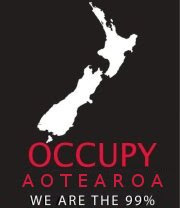The Unite Union has announced its endorsement of its General Secretary Matt McCarten to contest the Mana by-Election. McCarten is required to contest the election as an independent.
The Unite Union has been at the forefront of campaigning for low income workers in New Zealand over several years.
This government over the last year has launched attacks on workers that include the right for any worker to be sacked without notice or reason on the whim of an employer. In addition they are restricting the rights of workers by restricting union access to their members. The sale of holiday entitlements is only the start of claw backs for vulnerable workers. The cravenness of John Key to the US owners of the Hobbit films to even change our employment laws says it all.
Unite launched a campaign over a year ago to win $15 an hour minimum for every worker. 200,000 New Zealanders have signed our petition. Unite intends to make raising wages a central issue for the by-Election and will seek the support of all the candidates.
This government has no economic plan and just hopes that somehow the international markets will come to our rescue. They won’t.
By-elections are democratic processes where not only will they elect a new MP but they have an opportunity to send a message to parliament. Unite intends to do that.
We have been supportive of Labour’s long overdue realisation that the new right agenda implemented by their party and carried on by National have been a disaster for New Zealand. But we have been disappointed at their timidity over what the alternatives could be.
My candidature will give the people of Mana strong alternatives that roll back the failed ideology of the past 25 years.
We intend to run on three main platforms and seek a mandate from the voters of Mana:
#1 $15ph Min Wage NOW.
Raising wages is central to the campaign. The practical way to close the wage gap with Australia is by legislating for an immediate increase in the minimum wage to $15 an hour. If I win we will see that as a mandate to have a Royal Commission set up to enquire into what income a worker on 40 hours would need to live with dignity. Once established then appropriate economic and employment policy would be needed to ensure this happens. During the next 3 weeks we will seek to have a majority of the people of Mana to sign our petition to raise the minimum wage to $15 immediately. The cabinet currently is reviewing the minimum wage and we want a strong message sent to them from the voters of Mana.
#2. Jobs.
The free market won’t reduce unemployment. Government intervention is required to do that. Mana like every other electorate has about 3000 official unemployed. The dignity of meaningful work is an economic good in itself. To employ 3000 on $15 an hour in fulltime work costs less than $100m a year net. After giving over $1.6 billion of our money to South Canterbury Finance it’s clear it’s not about have we got the money, it’s about priorities. I want a strong message sent that no one gets the dole. The government will invest in jobs. In Mana we could put two teachers’ aides into very classrooms creating almost 1000 jobs. We could get the Wananga to train 500 young unemployed in basic building skills and set them up to repair and upgrade run down state houses. We can get another 500 into home help for senior citizens and the sick. It’s not science; it’s whether we have the will.
#3. Taxes.
The burden of paying the bills has dramatically shifted to the from the asset wealthy and high incomes to the middle and low income New Zealanders. GST is one of those taxes. Labour weak response is disappointing. I will release an alternative tax policy in the campaign to start the discussion off. Frankly GST has to go and an alternative like the Financial Transaction Tax (now enjoying popular support overseas as the Robin Hood tax) is fairer and more efficient.
I will also release policy discussion papers during the campaign on economic planning that includes foreign investment and immigration; and workers’ rights to start a discussion for areas that are clearly failing.
I intend to run a strong aggressive campaign and put the two main candidates under some pressure to work for their votes and ask them to respond to the above three platforms. Whilst I will target National (as the villains of course) Labour also has to engage in meaningful debate rather than generalisations.
The Other Candidates: All the candidates are fine people and are to be congratulated for offering themselves. But this by election isn’t about them or me. It’s about the people of Mana and the rest of New Zealand. I intend to engage in serious debate and persuade the people of Mana to send a big message to parliament to elect me as their representative to parliament on the 20th of November.


















